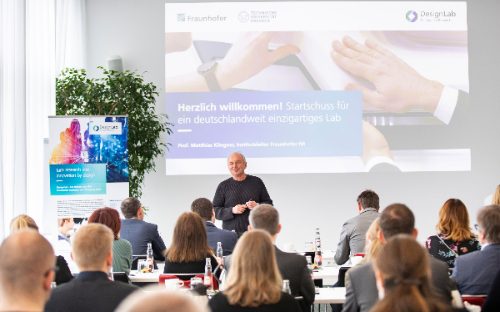
Design is becoming increasingly essential for Fraunhofer-Gesellschaft research in a variety of disciplines and forms. The Dresden Fraunhofer Institutes IVI, IWS, and IWU have now established the “DesignLab for Applied Research” in collaboration with the Technical University of Dresden. Starting in the Saxon capital, the Lab will conduct design research with all Fraunhofer institutes across the country – and someday, globally.
In the past, design was used sparingly at Fraunhofer. It is now “increasingly developing into an integral component of many projects,” contributing significantly to success. The Lab supports projects throughout the entire research process, from funding application to results transfer, by introducing methods and perspectives that greatly increase the application orientation and target group relevance of research. Thus, projects focusing on technical feasibility are supplemented by important design elements such as usability, ergonomics, or reliability. This helps to “closing the gap between technology maturity, user acceptance and functional added value”.
The “Department for Speculative Transformation” (DST), with the professorship for technical design, is an ideal partner for Fraunhofer, with many years of expertise at the interface between people and technology. The holder of the professorship, Jens Krzywinski, heads the “DesignLab for Applied Research“. “A comprehensive understanding of design,” states Krzywinski, “also generates added value in functional terms by focusing on the needs of users. It completes technological research and development by incorporating critical elements into effective overall solutions. A user-oriented design of operating elements or user interfaces improves usability and allows for efficient and safe operation.” In contrast, the results of practical development would be flow straight back into theoretical research through close cooperation.
More on ndion
Discover more articles on the topics of design and research.
Share this page on social media:

